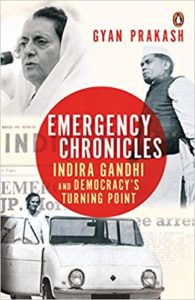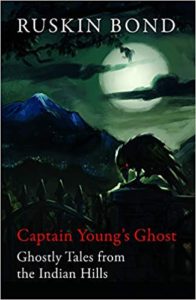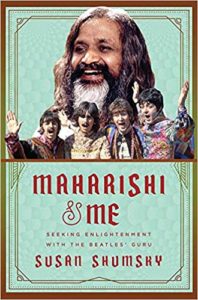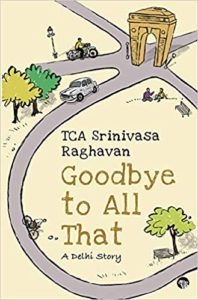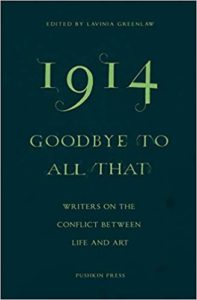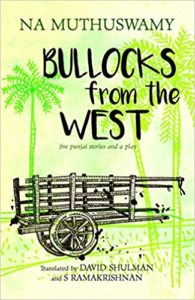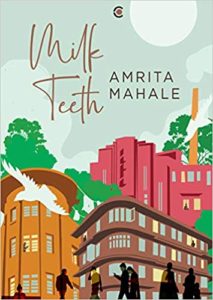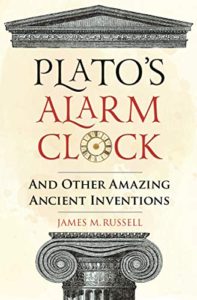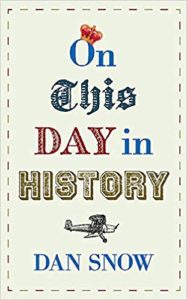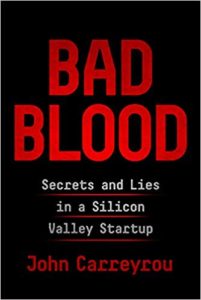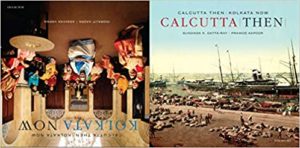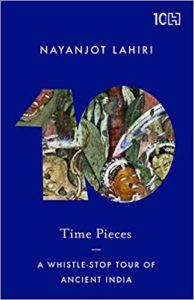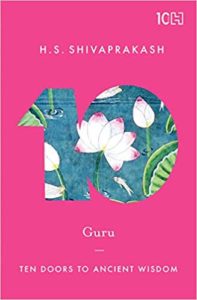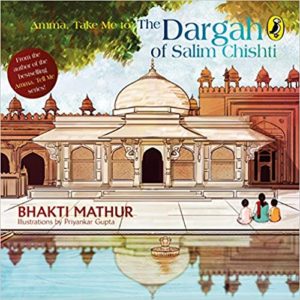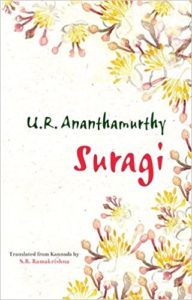“My Father’s Garden” by Hansda Sowvendra Shekhar
…on each trip home, I found my father working unrelentingly in his garden. And under his loving care, it flourished more than ever. A hibiscus tree, which had been falling over on one visit, would be propped up with bamboo staves on the next, covered with pale orange blossoms. The lime and lemon bushes woudl hang heavy with fruit in season. As would the mangoes, guavas, bananas and jackfruits. Before we left our quarters, my father had carefully plucked a litchi sapling from the premises as a memento. That, too, was flourishing. And just behind our kitchen, my mother and aunt cultivated their own little patch of earth. Thick, deep green vines of pui leaves climbed the iron grille of the verandah outside our kitchen. Tusli, dhania and pudina grew lush in the cool space near the tubewell where the water keeps the earth always moist. Birds made their home in our garden. The caws-caws and the chee-chees would start at dawn and wake us up. At dusk, their raucous homecoming would tell us that the day was at an end.
…
I once read somewhere that the single-minded pursuit of one course over a lifetime can only be justified if one engages in two enterprises — building a garden, or raising a child. I now understand that my father’s garden is truly his child. And this child gives him the happiness and peace of mind that nothing else could ever give him.
Award-winning writer Hansda Sowvendra Shekhar’s My Father’s Garden is narrated in first person by an unnamed medical student (later doctor) and is set in Jharkhand. It is divided into three sections of unequal lengths — Lover, Friend and Father.
“Lover”, set in Jamshedpur, is a self-obsessed, narcissistic, self-centred portrayal of a young medical student for whom sex is liberating, needy and satisfying but it is also self-consuming when he is rejected by all his lovers for heterosexual relationships that are socially acceptable. It pushes the narrator to depression and a suicide attempt when he slashes his wrists only to wake up the next morning to discover the blob of blood congealing near his bed. He returns home to his parents.
“Friend”, set in Pakur, while ostensibly about a colleague Bada Babu — a successful man if measured by his genial generosity, his popularity and his ever welcoming home with a lavish party organised at every festival or birthday. The unnamed narrator becomes a permanent fixture at these parties. Yet “Friend” is also about the socio-economic horrors that plague society, particularly one where most of the locals are gullible, innocent and absolutely ignorant of their rights. There are also easy prey to be economically exploited by the very same person, in this case Bade Babu, who while being politically shrewd turns out to be the the victims’ benevolent benefactor as well. It is illustrated by the horrendous episode of evicting the people from the land where Bade Babu also has built a house, although his did not have a permanent roof. The poor people had invested their savings into buying the land not realising that they had been conned and were actually illegally squatting on government property. Bade Babu’s house is also demolished on the day everyone else’s is but to the narrator’s chagrin he discovers that Bade Babu has secretly managed to build himself quite a magnificent mansion, many times bigger than his present home, and the new place has a permanent roof. Many of those evicted had no one to turn to except Bade Babu for help which he magnanimously promised to provide. It is an age-old vicious cycle that can also be perceived as the Survival of the Fittest.
“Father”, set in Ghatsila, is about the narrator’s return home and witnessing his father’s entry into politics. It is an eye-opening journey of self-discovery not just for the father but for his family too. They watch the father become a trustworthy footsoldier in the Hindu India Party. With this is a brief encapsulation of the political history, the rifts created for political gains between the Adivasis, Santhals etc. The narrator’s grandfather was a prominent Santhal leader and an associate of Jaipal Singh. The father’s political spark probably stems from this inheritance. So he continues to give it his best including running successful campaigns at the ground level allowing unknown candidates to make critical inroads into the voter base and slowly transforming local politics. All the political ambitions that the father may have nursed come to a griding halt the day the father discovers he has been outsmarted by the very same leaders he trusted and hoped would one day support his candidature too. He gives up his political existence. After a period of self-reflection he takes to gardening with enthusiasm. With his nurturing it is vibrant, alive and bursting with health.
The garden as a metaphor is a classic literary trope. Whether it is used knowingly in this manner by Hansda Sowvendra Shekhar is uncertain but it certainly works very well in this story. The garden becomes the paradise everyone yearns for, and it is no less hard work than any other activity one engages on a daily basis. It is equally hard work for it is nurturing life.
And here I have to digress with a personal anecdote to emphasise the significance of a conversation about gardens and political commentary. My grandfather, N. K. Mukarji, was Union Cabinet Secretary when Mrs Indira Gandhi returned as prime minister of India for the first time after Emergency. At the first Union Cabinet meeting held after the new government had been sworn in my grandfather took his place in the room. According to the story he would tell recount all eyes were upon him and Mrs Gandhi rather than the agenda to be discussed. Everyone was watching expectantly to see how Mrs Gandhi would engage with Mr Mukarji given their past. When Mrs Gandhi had wanted to impose the Emergency she knew it could not be done while N. K. Mukarji was the Union Home Secretary. He would never have agreed to sign such an unconstitutional move. In a swift move she moved him to the Civil Aviation Ministry and did exactly what she wanted to. Rest is history. So when they met again a few years later in the cabinet meeting everyone present was naturally curious. Before beginning the meeting Mrs Gandhi had a quiet word with my grandfather which to all those watching seemed as if she had made her peace with Mr Mukarji and thus she very smartly and with all her politcal savviness set the tenor for a new working relationship with her Cabinet Secretary. And what did she discuss? Gardening matters!
My Father’s Garden is in all likelihood part-memoir for there are similarities between the life of the author and the narrator especially that of being a doctor in Jharkhand. But unless otherwise confirmed it is perhaps not wise to attribute too much into the fiction. Nevertheless as with his previous books Hansda Sowvendra Shekhar writes powerfully, borrowing heavily from real experiences, combining it with his remarkable ability of transforming these episodes into fine literary fiction. A fantastic mix of the personal, political and literary always makes for a great story. It also allows for precise detail about the local landscape. The eye for precision makes its presence felt even in the unapologetic use of borrowing phrases from other Indian regional languages such as Bengali and Hindi and letting them flow naturally in the conversations — without italicising them!
My Father’s Garden is a tremendously confident piece of writing and an absolute pleasure to read.
15 February 2019

